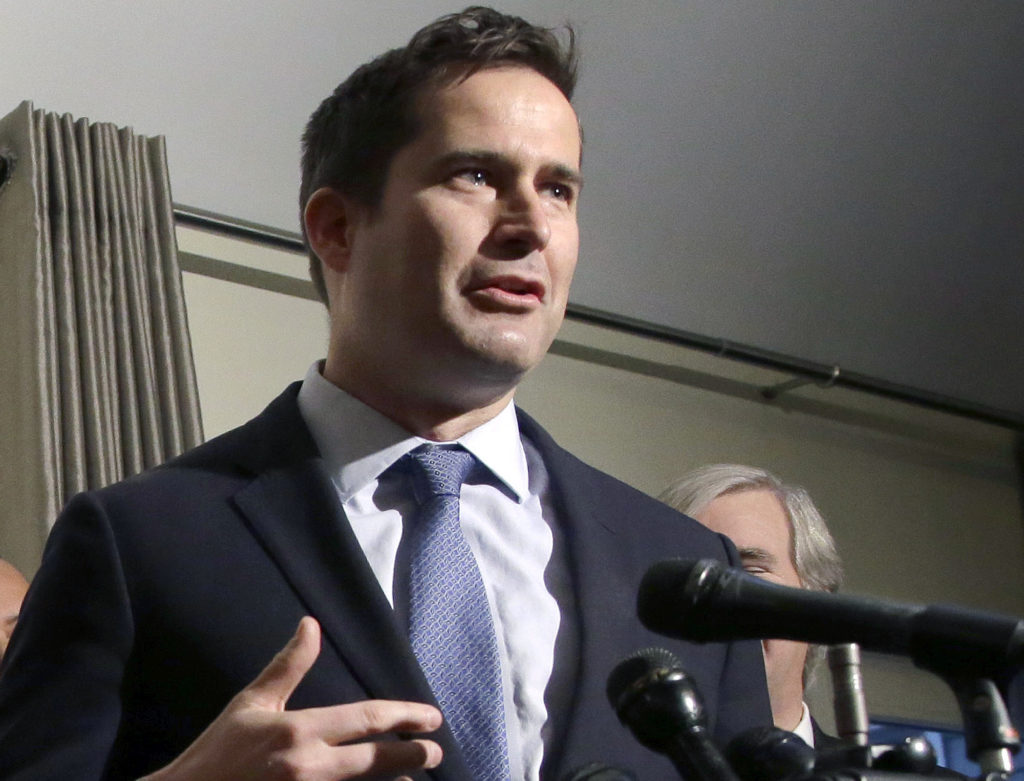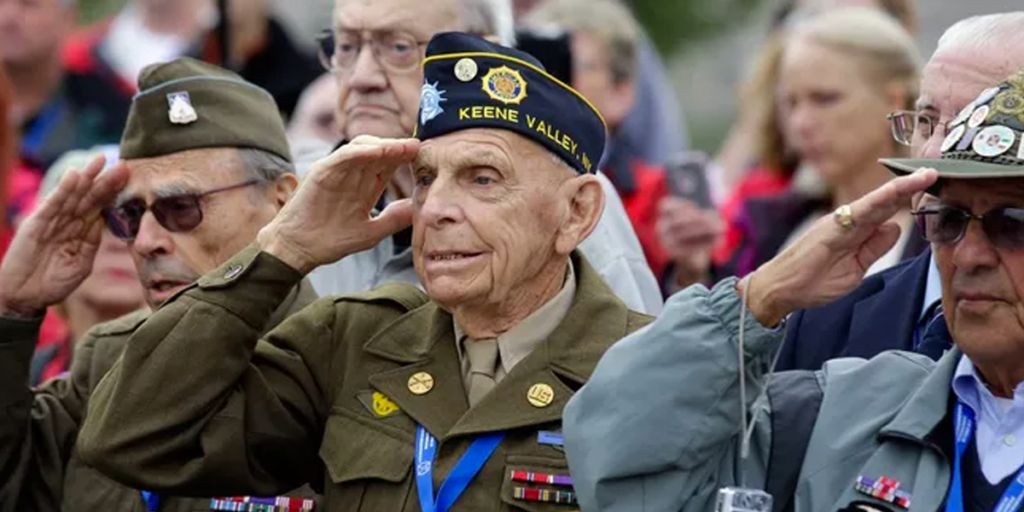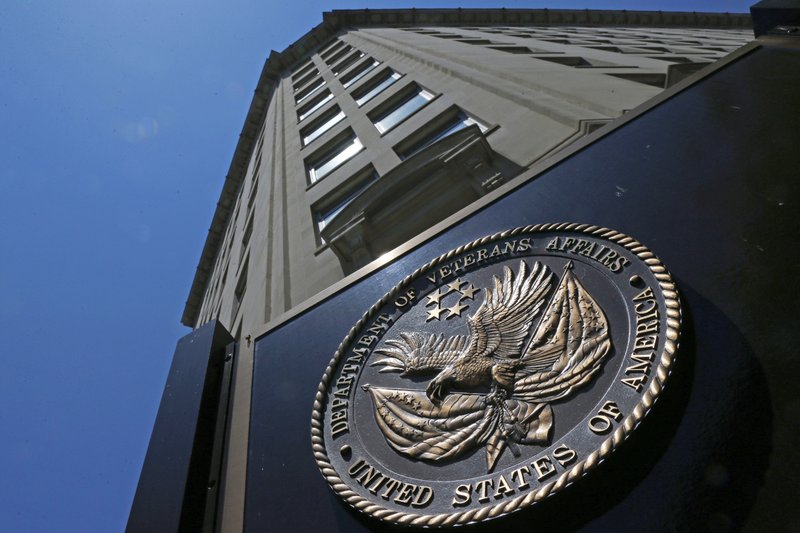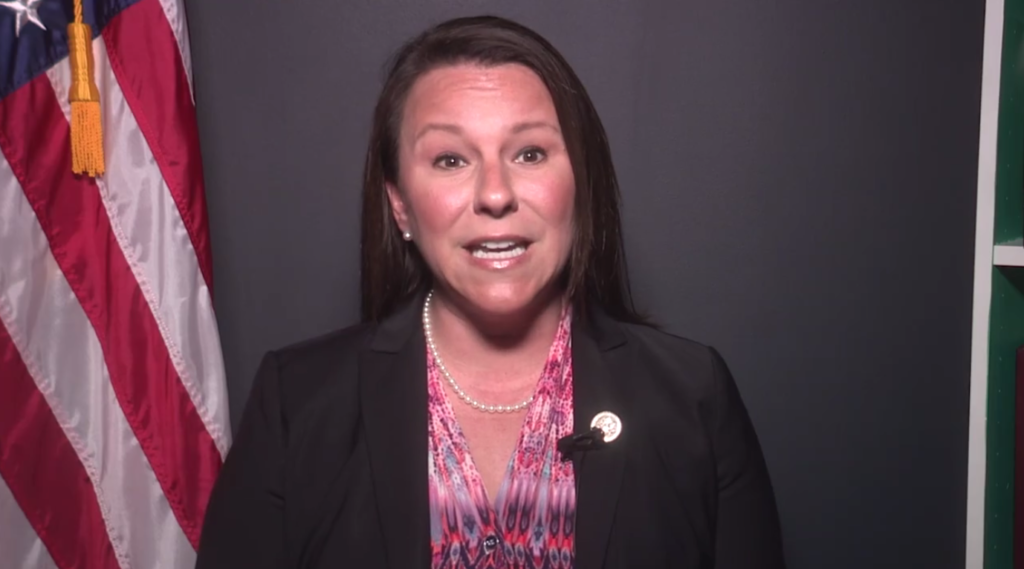Martha Roby announces 2017 Service Academy appointees

Alabama 2nd District U.S. Congresswoman Martha Roby, on Thursday announced that six 2nd District high school graduates have earned appointments to U.S. Service Academies. Each year Rep. Roby nominates students from her district to be considered for appointment to the United States Air Force, Naval, Military (West Point), and Merchant Marine Academies. The honor of attending a military service academy includes a four-year scholarship and comes with a commitment to service for a minimum of five years upon graduation. “It is an honor to nominate distinguished young men and women for appointment to our nation’s service academies each year,” Roby said. “I admire these students for their eagerness to serve our country, their academic excellence, and their strong leadership ability. I join their families, friends, and teachers in congratulating these men and women on this outstanding accomplishment. I am confident they will be successful in their future endeavors.” The following students were nominated by Roby and received official appointments to the United States service academies: Simeon Bowden: A native of Andalusia, Simeon is the son of Benjamin and Angela Bowden. Simeon is currently enrolled at Andalusia High School, and he received an official appointment to the United States Naval Academy. Morgan Gunn: A native of Dothan, Morgan is the daughter of John and Vanessa Gunn. Morgan is currently enrolled at Dothan High School, and she received an official appointment to the United States Air Force Academy. Barton Lester: A native of Montgomery, Barton is the son of Bart and Allison Lester. Barton is a graduate of The Montgomery Academy, and he is currently enrolled at the United States Air Force Academy Preparatory School. He received an official appointment to the United States Air Force Academy. Brian Probert: A native of Newton, Brian is the son of Allen and Dana Probert. Brian is currently enrolled at Wicksburg High School, and he received an official appointment to the United States Military Academy at West Point and the United States Naval Academy. Jackson South: A native of Montgomery, Jackson is the son of Branden and Amery South. Jackson is a graduate of Eastwood Christian School, and he is currently enrolled at the Naval Academy Preparatory School. He received an official appointment to the United States Naval Academy. Zachary Van Alst: A native of Prattville, Zackary is the son of Robert and Jennifer Van Alst. Zachary is currently enrolled at the Montgomery Catholic Preparatory School, and he received an official appointment to the United States Air Force Academy and the United States Military Academy at West Point.
Dems try to enlist military vets in fight for House majority

Democrats hope to enlist military veterans in another type of fight – for majority control of the House. Looking ahead to next year’s elections, Democrats are trying to recruit at least two dozen military veterans to challenge Republican incumbents, arguing that candidates with a military background on their resumes appeal to independent voters and can help the party break the GOP grip on Washington. “Veterans have had the experience of putting the country first, before personal politics” and party dictates, said Rep. Seth Moulton, D-Mass, who did four tours of duty in Iraq, left the Marines as a captain and was elected to Congress in 2014. That tends “to attract the kind of independent voters who are looking for a good leader,” Moulton added. Several veterans already have announced their bids in some of the 79 Republican-held House districts that national Democratic Party leaders have identified as top targets. Decades ago, veterans of World War II, Korea and Vietnam were mainstays in Congress. In 1969-71, 398 veterans served in the House and 69 in the Senate, according to the Congressional Research Service. But the change to an all-volunteer force in 1973 sent those numbers plummeting. The extended post-Sept. 11 conflicts in Afghanistan and Iraq helped reverse the trend, and now there are 80 veterans in the 435-seat House and 20 veterans in the 100-member Senate. For Democrats, struggling to return to the majority, military veterans provide potential candidates as the party deals with an electoral wipeout during Barack Obama‘s presidency, with the loss of more than 1,030 seats in state legislatures, governor’s mansions and Congress. Moulton and Sen. Tammy Duckworth, D-Ill., who lost both legs and partial use of an arm in a rocket-propelled grenade attack in Iraq, have spoken to veterans in districts ranging from obvious Democratic targets to places where the path to victory isn’t as obvious. The party needs to pick up 24 seats to reclaim a House majority next November. In the Philadelphia suburbs, former Air Force officer Chrissy Houlahan is challenging two-term Republican Rep. Ryan Costello in one of 23 districts where Democrat Hillary Clinton topped Trump in November. Outside Denver, former Army Ranger and combat veteran Jason Crow, a onetime campaign adviser to Obama, is running for the seat held by another veteran, five-term GOP congressman, Mike Coffman. Both mentioned President Donald Trump as factors in their campaign. “All the bravado and the wailing and gnashing of teeth isn’t the way we conduct ourselves as professional service members,” Houlahan said of Trump’s rhetoric. Said Crow: “I’m deeply troubled by President Trump and what he’s trying to do to country and our democracy.” Dan McCready, a former Marine who attended Harvard Business School alongside Moulton, steered clear of Trump as he announced his bid to win the more Republican-leaning North Carolina district of three-term Republican Rep. Robert Pittenger. But all three candidates, along with Moulton, agreed that veterans offer voters an approach rarely taken on Capitol Hill. “We know what it’s like to serve the country in non-political ways, and we’re standing up to say that the system is broken,” said Crow. He added that any military unit brings together “Republicans, Democrats, unaffiliated, every different background, every part of the country, urban rural, every rung of the economic ladder, and they have to come together very quickly … or the mission fails.” Democratic veterans have run notable campaigns in recent years. Louisiana Gov. John Bel Edwards, a West Point graduate and former Ranger, emphasized his record to attract enough voters in a conservative state. In Missouri last year, former Army intelligence officer Jason Kander drew national attention for his U.S. Senate campaign ad in which he assembled an AR-15 rifle while blindfolded. He lost by 3 percentage points, but got 230,000 more votes than Clinton, who lost the state by 18 points. Seth Lynn, who runs the nonpartisan Veterans Campaign, an organization that trains veterans running for office, says research suggests veterans running against a non-veteran get “about a 2-point bump” on average. Lynn isn’t yet tracking exact numbers of veteran candidates, but says he’s seen a “noticeable uptick” among Democrats. Some of that, Lynn says, is the usual clamoring by the party out of power: Republican veterans arose in 2010, the first midterm under Obama, and Democrats’ boasted a large slate in 2006, amid opposition to the Iraq war during President George W. Bush‘s second term. Those veteran candidates did not all win, of course. But those midterm years marked the last two times voters tossed out the House majority in favor of the other party. Republished with permission of The Associated Press.
Alabama ranks high on 2017 list of best states for military retirees

For active duty military, home is where ever the government sends you. But for military retirees with the option to choose where they live, Alabama’s not a bad choice. That’s according to a new study of 2017’s Best & Worst States for Military Retirees by personal finance website Wallethub, which ranked the Yellowhammer State as the 13th best state for military retirees That’s good news for the over 400,000 veterans living in Alabama. WalletHub conducted the study in light of May being Military Appreciation Month. Their analysts compared all 50 states and Washington, D.C., across three dimensions — economic environment, quality of life, and health care —To determine the best and worst states for military retirement. Alabama came in first place for economic environment rank, but found itself in the middle of the pack at 25 for quality of life, and at disappointing 38th place when it comes to veterans health care. The study also found Red States were more friendly toward military retirees than Blue States. The top five states: Florida Montana New Hampshire Wyoming South Carolina The five worst states: Utah North Carolina Rhode Island New Jersey Here’s how Alabama compared to the rest of the country: Source: WalletHub
Agreement reached on stalled VA accountability bill

Congressional Republicans and Democrats have reached agreement on a bill to make it easier for the Department of Veterans Affairs to fire its employees, part of an accountability effort touted by President Donald Trump. The deal being announced early Thursday could smooth the way for final passage on an issue that had been largely stalled since the 2014 wait-time scandal at the Phoenix VA medical center. As many as 40 veterans died while waiting months for appointments as VA employees created secret waiting lists and other falsehoods to cover up delays. The Hill deal followed a fresh warning from the VA inspector general’s office of continuing patient safety problems at another facility, the VA medical center in Washington D.C. After warning of serious problems there last month, the IG’s “rapid response” team visited the facility again on Wednesday and found a patient prepped for vascular surgery in an operating room, under anesthesia, whose surgery was postponed because “the surgeon did not have a particular sterile instrument necessary to perform the surgery.” The team also found “surgical instruments that had color stains of unknown origin in sterile packs,” according to the IG’s letter sent Wednesday to the VA. The IG again urged the department to take immediate action to ensure patients “are not placed at unnecessary risk.” The new accountability measure, led by Sen. Marco Rubio, R-Fla., softens portions of a bill that had passed the House in March, which Democrats criticized as unfairly harsh on workers. Sens. Jon Tester of Montana and Johnny Isakson of Georgia, the top Democrat and the Republican chair on the Senate Veterans’ Affairs Committee, agreed to back the new bill after modifications that would give VA employees added time to appeal disciplinary actions. House Veterans Affairs’ Committee Chairman Phil Roe, sponsor of the House measure, said he would support the revisions. “To fully reform the VA and provide our nation’s veterans with the quality care they were promised and deserve, we must ensure the department can efficiently dismiss employees who are not able or willing to do their jobs,” Rubio told The Associated Press. It comes after Trump last month signed an executive order to create a VA Office of Accountability and Whistleblower Protection, with an aim of identifying “barriers” that make it difficult for the VA to fire or reassign bad managers or employees. VA Secretary David Shulkin had urged the Senate to act quickly to pass legislation. The GOP-controlled House previously approved an accountability bill mostly along party lines. Rep. Tim Walz, D-Minn., argued the House should embrace language instead from a bipartisan bill by Isakson from last year with added due process protections for workers. The Senate bill to be introduced Thursday adopts several portions of that previous Isakson bill, including a longer appeal process than provided in the House bill — 180 days vs. 45 days, though workers would not be paid during that appeal. VA executives would be held to a tougher standard than rank-and-file employees for discipline. The Senate bill also codifies into law the VA accountability office created under Trump’s order, but with changes to give the head of the office more independent authority and require the office to submit regular updates to Congress. Conservative groups praised the bill. “These new measures will disincentivize bad behavior within the VA and further protect those who bravely expose wrongdoing,” said Dan Caldwell, policy director of Concerned Veterans for America, pointing to a “toxic culture” at VA. The agreement comes in a week in which Senate Democrats are standing apart from Trump on a separate issue affecting veterans, the GOP bill passed by the House to repeal and replace the nation’s health care law. Sen. Tammy Duckworth, D-Ill., warned the House measure would strip away explicit protections to ensure that as many as 8 million veterans who are eligible for VA care but opt to use private insurance would still receive tax credits. Many veterans use a private insurer if they feel a VA facility is too far away, or if they don’t qualify for fuller VA coverage because they have higher incomes or ailments unrelated to their time in service, said Duckworth, a combat veteran who lost her legs and partial use of her right arm during the Iraq war. A group of GOP senators is working to craft their own health bill. “Trumpcare threatens to rip health care out of their hands,” Duckworth said at a news briefing this week. “The question left is what will Senate Republicans do?” Congress has had difficulty coming to agreement on an accountability bill after the Phoenix VA scandal. A 2014 law gave the VA greater power to discipline executives, but the department stopped using that authority after the Obama Justice Department deemed it likely unconstitutional. Critics have since complained that few employees were fired for various VA malfeasance, including rising cases of opioid drug theft, first reported by the AP. Republished with permission of The Associated Press.
Donald Trump extends private-sector health care program for vets

President Donald Trump has signed a bill extending a program that lets some veterans seek medical care in the private sector. The extension will give Veterans Affairs Secretary David Shulkin time to develop a more comprehensive plan to allow veterans to more easily go outside the VA health system for care. The new law allows the VA to operate its Choice program until its funding runs out, expected early next year. Trump says veterans have “not been taken care of properly” and the bill will extend and improve the program so they can see any doctor they choose. The Choice program was put in place after a 2014 scandal over long wait times for vets at the VA medical center in Phoenix. The program was to have expired in August. Republished with permission of The Associated Press.
Alabama delegation reacts to U.S. airstrikes in Syria

Some members of Alabama’s congressional delegation are reacting to President Donald Trump’s decision to launch a series of airstrikes in Syria Thursday evening. The strikes targeted an airfield where a recent chemical attack on Syrian civilians is said to have originated and killed more than 80 Syrian civilians. Here’s what the Alabama delegation is saying about the airstrikes: Senator Luther Strange: President Trump’s decision to engage in tactical airstrikes against the Syrian regime is the kind of decisive action required at this critical moment in the ongoing regional crisis. I applaud the swift action of our courageous U.S. military and encourage the President to make it clear that the Assad regime will continue to face swift and strong judgment for its atrocities. The Syrian people have suffered at the hands of a brutal dictator for too long. Alabama 1st District U.S. Rep. Bradley Byrne: President Trump was right to respond to Assad’s barbaric and inhumane actions against men, women, and children in Syria. It appears the strikes were targeted and successful, and I want to share my gratitude and appreciation with the service members who planned and executed the strikes. Ultimately, we still must answer a larger question about the future of Syria and the role of the United States going forward. One thing is clear: Congress must be involved in those discussions and decisions about what happens next. Alabama 2nd District U.S. Rep. Martha Roby: I applaud President Trump for his decisive response to Assad’s brutal chemical weapons attack. Many questions remain for the U.S. and the world in dealing with Syria, but one thing is for sure: this brutality will no longer be tolerated. A special “thank you” to our brave military personnel who carried out this strike in Syria with precision. Alabama 4th District U.S. Rep. Robert Aderholt: I fully support President Trump’s missile strike against Syria. The actions of the Syrian regime are deplorable and unacceptable. Alabama 7th District U.S. Rep. Terri Sewell: The Assad regime’s use of chemical weapons against its own civilians was an inhumane and unforgivable offense that requires an international response,” said Rep. Sewell. “As Americans, we cannot stand by and do nothing, and I believe that the airstrikes launched this week were a proportional response. But to effectively end the brutality of the Assad regime and the suffering of Syrian people, we need a comprehensive strategy with buy-in from lawmakers in Congress and international partners. To address the crisis in Syria, including attacks on Syrian civilians, political instability, and the large-scale immigration of Syrian refugees, our country needs a long-term strategy for ending the violence. Congress can no longer abdicate its responsibility for addressing this international crisis. Any additional use of military force must be approved by the House and Senate. The chemical attacks against Syrian civilians which we responded to this week are only the latest horrors perpetrated by Bashar al-Assad against his own country. As we continue to debate federal policy on providing relief for refugees, it is important to remember the millions of Syrians who have faced years of terror, this week so horrible that our country responded with military action.
Senate agrees to extend VA’s program of private-sector care

The Senate on Monday approved legislation that would extend a troubled program aimed at widening veterans’ access to private-sector health care, the first step in an overhaul of programs at the Department of Veterans Affairs. The bill passed by voice vote. It would allow the VA to continue operating its Choice program until its money runs out, expected to occur early next year. Without legislation, the program will expire on Aug. 7 with nearly $1 billion left over in its account. The VA says that money can provide stopgap care until a broader revamp is designed. The Choice program was put in place after a 2014 wait-time scandal at the Phoenix VA medical center in which some veterans died. Intended to provide veterans more timely care, the Choice program allows veterans to go outside the VA network in cases where they had to wait more than 30 days for an appointment or drive more than 40 miles to a facility. Yet it often encountered long wait times of its own due to bureaucratic glitches and other problems. The Senate bill calls for fixes in the program to address some of those concerns, by helping speed up VA payments and promote greater sharing of medical records. It now goes to the House, which was expected to easily pass the measure Wednesday. “This bipartisan legislation cuts some of the red tape that slows down veterans’ access to care in their communities,” said Montana Sen. Jon Tester, the top Democrat on the Senate Veterans’ Affairs Committee. “I’m proud that Republicans and Democrats in Congress worked together to provide these solutions for veterans.” Tester sponsored the bill along with Republican Sens. John McCain of Arizona and Johnny Isakson of Georgia. Major veterans’ organizations and Democrats were not opposed to continuing the Choice program as a stopgap. But they are closely watching the VA’s subsequent overhaul, after President Donald Trump‘s transition team signaled last year that it would consider a “public-private” option in which veterans could get all their medical care in the private sector, with the government paying the bill. Veterans groups generally oppose that as a threat to the viability of VA medical centers. While VA Secretary David Shulkin has promised not to privatize the department, he says he wants to build stronger partnerships with the private sector to improve VA care. A newly formed White House Office of American Innovation led by Trump’s son-in-law, Jared Kushner, is also now examining ways to improve the VA. Republished with permission of The Associated Press.
Martha Roby introduces legislation to offer veterans better resources

Veterans receiving mental health care and substance abuse treatment through the Department of Veterans Affairs stand to gain a powerful new ally under legislation introduced by Alabama 2nd District U.S. Rep. Martha Roby. H.R. 1712, the Protection and Advocacy for Veterans Act, would empower state and local Protection and Advocacy agencies to directly investigate the quality of mental health care and substance abuse treatment provided to veterans at the VA and allow these agencies to advocate for patients found to be receiving inadequate care. Protection and Advocacy agencies monitor the quality of state-operated hospitals, clinics, psychiatric wards, prisons, and other facilities. Their agents have the authority to inspect medical records and take legal action on behalf of patients when necessary. Roby’s bill would authorize funding for a pilot program testing the feasibility of utilizing Protection and Advocacy agencies to provide this service at the VA. “For 40 years, Protection and Advocacy agencies in Alabama and around the country have provided a critical service by monitoring the quality of care in state-operated hospitals, clinics, and other facilities,” said Roby in a news release. “I believe bringing this degree of expertise in patient advocacy to the VA would greatly benefit veterans, particularly those in need of mental health care or substance abuse treatment.” Roby continued, “In recent years, Congress has boosted funding for mental health care services and enacted legislation making it easier for the VA to attract mental health care professionals. This is a step in the right direction, but I believe we can do better. We owe it to our veterans to bring all available resources to bear to ensure access to proper treatment.” Roby’s bill has been referred to the House Committee on Veterans Affairs. Watch Roby discuss her new bill below:
Battered by scandal, Marines issue new social media policy

Battered by a nude photo-sharing scandal, the Marine Corps has issued a longer and more detailed social media policy that lays out the professional and legal ramifications for service members culpable of online misconduct. Among the coming changes: a requirement that all Marines sign a statement acknowledging they have read and understand the new guidelines. The adjustments are designed to give leaders more leeway in prosecuting or punishing offenders. Former and current female Marines have reported their photographs and those of women in other services being posted on social media pages without their consent. Investigators are also looking into threatening and obscene comments Marines wrote accompanying the images. The new policy makes it clear how existing rules and the Uniform Code of Military Justice can be used to prosecute offensive, indecent or disrespectful online activities. But it creates no new laws, underscoring the legal quagmire posed by the internet and the constraints on military leaders posed by privacy laws and the First Amendment right of free speech. Released in recent days by Gen. Robert Neller, the Marine commandant, the Corps’ new guidance is one result of the ongoing criminal investigation. “Marines should think twice before engaging in questionable online activities, and must avoid actions online that threaten the morale, operational readiness and security, or public standing of their units, or that compromise our core values,” the policy states, addressing any content or comments that are deemed defamatory, threatening, harassing or discriminating on the basis of race, color, sex, gender, age, religion, national origin, sexual orientation or other criteria. It makes clear that bad behavior can be punished under the military code. The Marine Corps isn’t the only service making changes. The Army is sending out a new message to its force, signed by senior leaders including Gen. Mark Milley, the Army chief of staff, and warning soldiers that online misconduct is unacceptable and passive tolerance of bad behavior by others is also wrong. The Army has routinely updated its social media policy to emphasize treating soldiers with dignity and respect, including in February before the Marine scandal surfaced. The services are urging any victims of improper photo-sharing to come forward. The Naval Criminal Investigative Service said it is getting more tips every day, but investigators acknowledge the legal hurdles in finding and prosecuting offenders. Twenty women have reported that they’re victims. The probe has expanded in the last two weeks, as services beyond the Marines examine if their members are involved. So far, they say no victims from the other services have come forward. No men have said they were victimized. One problem for investigations is that photos were shared by Marines and others on a private Facebook page that was members-only and men-only. And they were mainly housed on a Google Drive linked to the page. The Facebook page has been taken down and that Google drive link is also gone, although officials say the photos likely migrated to other sites. Because the page is gone, investigators must rely on screenshots showing the screen names of military members, as well as reports from victims who heard about or saw the images. Tracking offenders is difficult because many may not use real names. Another challenge: The bulk of the photos are selfies. Many were likely provided willingly by the person in the picture to someone else, or possibly posted on Instagram or another such site. The question then becomes whether sharing an explicit photo that was provided willingly is a crime. A number of states have laws prohibiting so-called revenge pornography, and the military is looking at making a similar addition to its code, a change several senators are suggesting. But such a law may require prosecutors to prove the posting’s intent was to harm the individual and that it had an impact. Both can be difficult to prove. Officials also have to tread carefully to avoid restricting free speech. As an example, attempting to prohibit anyone from looking at or posting a nude photo on the internet would be difficult to do and nearly impossible to enforce. The military, however, has greater ability to punish service members beyond strictly legal violations. Officers can be charged with conduct unbecoming an officer, and service members can be punished for harming the good order and discipline of their unit, or their military service. These broader categories give commanders greater flexibility in ordering administrative punishment or even forcing service members to leave the military. Republished with permission of The Associated Press.
House passes bill to help VA fill critical job openings with support of entire Alabama delegation

While partisan politics undeniably has its place in the nation’s capital, on Friday members of the U.S. House of Representatives put aside political bickering in order to support an issue everyone agrees on — taking better care of America’s veterans. With the support of the entire Alabama delegation, the House unanimously passed H.R. 1367 in hopes of improving the Department of Veterans Affairs’ (VA) ability to recruit and retain high-quality health care providers and other professionals. The department has tens of thousands of vacant positions, and the bill would help strengthen the VA’s ability to identify staffing shortages, recruit employees to fill vacant positions, quickly on-board new hires, and retain high-performing workers across the country. Additionally, it contains provisions that would improve leadership and accountability throughout VA system, while helping increase the number of veterans in the federal workforce. Also included in the bill, was an amendment added by Alabama-Democrat 7th District U.S. Rep. Terri Sewell. The amendment encourages the VA Secretary to select eligible employees for its Fellowship Program who represent rural areas in order to alleviate the systemic burdens of rural healthcare workforce shortages. “In return for their service, our country has a sacred obligation to care for our veterans and military families,” said Sewell. “Today’s bipartisan support for legislation that strengthens VA hiring practices is an important step towards providing more responsive, more effective healthcare for our nation’s heroes.” Approximately 25 percent of America’s veterans live in rural communities and comprise nearly 11 percent of the adult rural population. Rural veterans account for 36 percent of all VA enrollees, making Sewell’s amendment particularly pertinent. “My amendment helps to ensure that veterans who are serviced by rural VAs have access to healthcare experts with cutting edge experience in the public and private sectors,” Sewell continued. “On top of long driving distances and minimal access to care, workforce shortages make it harder for our rural veterans to get the help they need, when they need it. I want to thank my colleagues on both sides of the aisle for their support, and I look forward to continuing our work to ensure that our nation keeps its promise to the men and women who serve our country.”
Many Donald Trump voters would feel program cuts in budget proposal

The closure of a regional airport could force residents of a small town in upper Michigan to drive eight hours to catch a flight. The elimination of funding to keep the Great Lakes clean could hurt business at a waterside Ohio boating club. Cuts to the nation’s flood insurance program could mean greater losses after a storm for homeowners on Florida’s Gulf Coast. In his first budget blueprint since taking office, President Donald Trump held to his promise to build up the U.S. military while slashing domestic spending — even for programs that benefit the rural and lower-income Americans who voted for him last November. “Some people might think it’s a betrayal,” said Eric Waara, the Republican city manager of the 7,000-person town of Houghton on Michigan’s Upper Peninsula, who said he hoped the proposal was just a negotiating tactic. “I think that we all hope it’s the first small step until something better.” Houghton sits more than 200 miles from a major highway and for many residents the Houghton County Memorial Airport is their connection to the outside world. Trump’s proposed elimination of the Transportation Department’s Essential Air Service program, or EAS, could force the airport to close or dramatically curtail service, leaving residents with a four-hour drive to Green Bay, Wisconsin, or eight hours to Chicago to catch a flight, Waara said. The administration said it would save $175 million a year. Trump carried Houghton County with more than 54 percent of the vote as he became the first Republican to win Michigan since 1988. He got more than 50 percent of the vote in 86 of the 111 communities served by EAS, according to an Associated Press analysis of voting data. The proposed $1.15 trillion budget distills much of Trump’s sweeping campaign rhetoric into a set of hard choices and cold priorities. Trump is calling on Congress to boost defense spending by $54 billion, a move popular with many Republicans. A wall along the border with Mexico, a core campaign promise, would receive $4 billion to start construction. Trump’s campaign promises to gut ineffective programs and shrink a bloated bureaucracy translated into a plan that cuts environmental protections programs, community development funding, housing vouchers, scientific research, a commission to create economic opportunities in Appalachia and other programs. Funding for popular social services like Meals on Wheels, which provides food to the elderly, and after-school programs for children, also are on the chopping block. The outline — the start of negotiations with Congress — leaves untouched Social Security, Medicare and Medicaid spending. “Rural America stepped up to the plate behind the president in his last election, and we’re wholeheartedly behind him. We need to make sure that rural America at least gets its fair share,” said Alabama Rep. Robert Aderholt, the Republican chairman of the House agriculture appropriations subcommittee. Aderholt, who represents one of the highest Trump voting congressional districts in the country, said he’s generally supportive of less federal spending but has concerns about cuts that would hurt several rural development programs. “It doesn’t really reflect President Trump’s support for rural communities,” he said. Trump administration officials said the proposal supports a desire to give states more flexibility and to protect taxpayers from seeing their dollars wasted. “You’re only focusing on half of the equation, right?” Office of Management and Budget Director Mick Mulvaney said when asked about the cuts. “You’re focusing on recipients of the money. We’re trying to focus on both the recipients of the money and the folks who give us the money in the first place.” The budget proposal offered the promise of increased spending and services in some parts of Trump Country. The plan calls for a $500 million increase in spending to counter opioid epidemic, an acute problem in many rural communities. It proposes an additional $4.4 billion for veterans health care, including money to extend a program that allows eligible veterans to seek care from a private doctor outside the VA network. Trump’s proposed military buildup could be an economic boon to military contractors and military communities. In the areas surrounding Fayetteville, North Carolina, what’s good for Fort Bragg is good for the community. “We can’t help but look upon the budget favorably,” said Robert Van Geons, head of Fayetteville-Cumberland County Economic Development Corp. Two of the counties that make up the sprawling Fort Bragg delivered more than 60 percent of its votes for Trump. Others saw economic worries in the proposal. The blueprint would cut almost all the $300 million in funding for the Great Lakes Restoration Initiative, raising concern among some in the Ohio counties along Lake Erie. The initiative was started to help limit invasive species such as the Asian carp, among other threats. It was meant to reduce dangers such as the outbreak of bacteria in 2014 that contaminated drinking water for nearly 500,000 people living around Toledo. Trump’s budget plan says that these programs should be the responsibility of state and local governments. At Catawba Island Club, a lakeside club with hundreds of boat slips, a golf course and 100 year-round employees in Ohio’s Ottawa County, President Jim Stouffer said a rise in pollution could hurt his business. “Our reason for being is our members being able to get out on the water,” Stouffer said. Trump won the county by 57 percent of the vote on his way to carrying Ohio. The budget plan would also cut $190 million for mapping flood hazards for the National Flood Insurance Program, as well as grants to fund projects that would reduce damage from natural disasters. Without accurate maps of floodplains and the engineering projects funded by these grants, the costs from flood losses and natural disasters could be even higher for homeowners, businesses and taxpayers, said Don Griffin, a vice president at the Property Casualty Insurers Association of America. The three states with the most flood insurance policies, according to the government, are Florida, Texas and Louisiana, all of which supported Trump. Republished with permission of
Donald Trump’s budget: Build up military, build the wall

President Donald Trump unveiled a $1.15 trillion budget Thursday, proposing a far-reaching overhaul of federal spending that would slash many domestic programs to finance a big increase for the military and make a down payment on a U.S.-Mexico border wall. Trump’s plan seeks to upend Washington with cuts to long-promised campaign targets like foreign aid and the Environmental Protection Agency as well as strong congressional favorites such as medical research, help for homeless veterans and community development grants. “A budget that puts America first must make the safety of our people its number one priority — because without safety, there can be no prosperity,” Trump said in a message accompanying his proposed budget that was titled “America First: A Budget Blueprint to Make America Great Again.” The $54 billion boost for the military is the largest since President Ronald Reagan‘s Pentagon buildup in the 1980s, promising immediate money for troop readiness, the fight against Islamic State militants and procurement of new ships, fighter jets and other weapons. The 10 percent Pentagon boost is financed by $54 billion in cuts to foreign aid and domestic agencies that had been protected by former President Barack Obama. The budget goes after the frequent targets of the party’s staunchest conservatives, eliminating the National Endowment for the Arts, legal aid for the poor, low-income heating assistance and the AmeriCorps national service program established by former President Bill Clinton. Such programs were the focus of lengthy battles dating to the GOP takeover of Congress in 1995 and have survived prior attempts to eliminate them. Lawmakers will have the final say on Trump’s proposal in the arduous budget process, and many of the cuts will be deemed dead on arrival. White House Budget Director Mick Mulvaney acknowledged to reporters that passing the cuts could be an uphill struggle and said the administration would negotiate over replacement cuts. Mulvaney also went after GOP favorites, including aid to rural schools and health research, while eliminating subsidies for rural air service and the federal flood insurance program that’s a linchpin for the real estate market, especially in coastal southern states and the Northeast. Trump’s GOP allies Capitol Hill gave it only grudging praise, if any. “Congress has the power of the purse,” reminded House Appropriations Committee Chairman Rodney Frelinghuysen, R-N.J. “I look forward to reviewing this,” said House Speaker Paul Ryan, R-Wis. “This is not a take-it-or-leave-it budget,” Mulvaney admitted. Law enforcement agencies like the FBI would be spared, while the border wall would receive an immediate $1.4 billion infusion in the ongoing fiscal year, with another $2.6 billion planned for the 2018 budget year starting Oct. 1. Trump repeatedly claimed during the campaign that Mexico would pay for the wall when, in fact, U.S. taxpayers will foot the bill. Twelve of the government’s 15 Cabinet agencies would absorb cuts under the president’s proposal. The biggest losers are Agriculture, Labor, State, and the Cabinet-level EPA. The Defense Department, Department of Homeland Security and Department of Veterans Affairs are the winners. More than 3,000 EPA workers would lose their jobs and programs such as Obama’s Clean Power Plan, which would tighten regulations on emissions from power plants seen as contributing to global warming, would be eliminated. Popular EPA grants for state and local drinking and wastewater projects would be preserved, however, even as research into climate change would be eliminated. Trump’s proposal covers only roughly one-fourth of the approximately $4 trillion federal budget, the discretionary portion that Congress passes each year. It doesn’t address taxes, Social Security, Medicare and Medicaid, or make predictions about deficits and the economy. Those big-picture details are due in mid-May, and are sure to show large — probably permanent — budget deficits. Trump has vowed not to cut Social Security and Medicare and is dead set against raising taxes. “The president’s going to keep his promises” to leave Social Security and Medicare alone, Mulvaney said. But the budget increases user fees, boosting the airline ticket tax by $1 per one-way trip. The so-called “skinny budget” is indeed skimpy, glossing over cuts to many sensitive programs such as community health centers, national parks, offering only a vague, two-page summary of most agencies, including the Pentagon, where allocating its additional billions is still a work in progress. Trump’s proposal is sure to land with a thud on Capitol Hill, and not just with opposition Democrats outraged over cuts to pet programs such as renewable energy, climate change research and rehabilitation of housing projects. Republicans like Sen. Rob Portman of Ohio are irate over planned elimination of a program to restore the Great Lakes. Top Republicans like Majority Leader Mitch McConnell of Kentucky and Senate Foreign Relations Committee Chairman Bob Corker of Tennessee are opposed to drastic cuts to foreign aid. And even GOP defense hawks like Armed Services Committee Chairman Mac Thornberry of Texas aren’t satisfied with the $54 billion increase for the military. Before the two sides go to war over Trump’s 2018 plan, they need to clean up more than $1.1 trillion in unfinished agency budgets for the current year. A temporary catchall spending bill expires April 28; negotiations have barely started and could get hung up over Trump’s request for the wall and additional border patrol and immigration enforcement agents, just for starters. Some of the most politically sensitive domestic programs would be spared, including food aid for pregnant women and their children, housing vouchers for the poor, aid for special education and school districts for the poor, and federal aid to historically black colleges and universities. But the National Institutes of Health would absorb a $5.8 billion cut despite Trump’s talk in a recent address to Congress of finding “cures to the illnesses that have always plagued us.” Subsidies for airlines serving rural airports in Trump strongholds would be eliminated. It would also shut down Amtrak’s money-losing long-distance routes and kill off a popular $500 million per-year “TIGER Grant” program for highway projects created by Obama. Republished with permission of The Associated Press.


